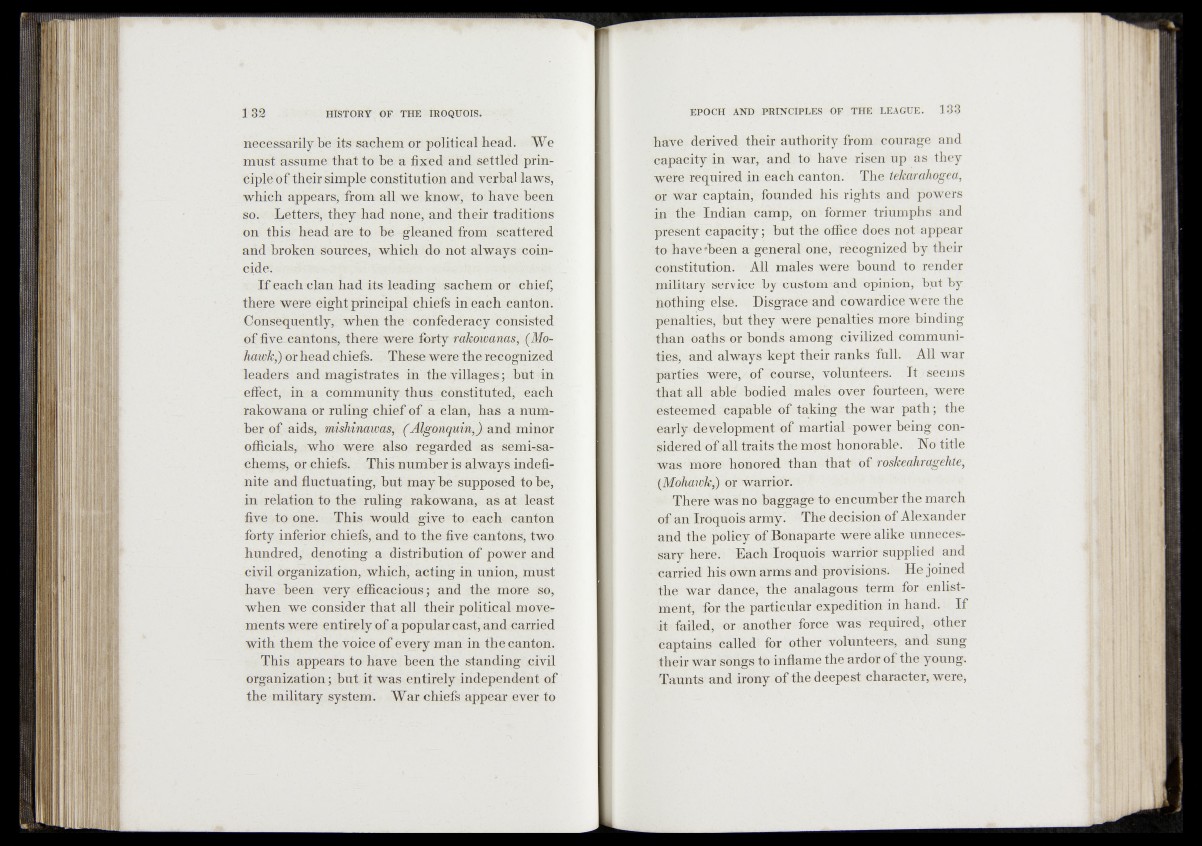
necessarily be its sachem or political head. We
must assume that to be a fixed- arid settled principle
of their simple constitution and verbal laws,
which appears, from all we know, to1, have been
so. Letters, they had none, and their traditions
on this head are to be gleaned from scattered
and broken sources, which do not always Coim
cide.
If each clan had its leading sachem or chief,
there were eight principal chiefs in each canton.
Consequently, when the confederacy consisted
of five_cantons,
hawk,) or head chiefs. These were the recognized
leaders and magistrates in the yillages; but in
effect, in a community thus constituted, each
rakowana or ruling chief of a clan, has a number
of aids, mishinawas, (Algonquin,) and minor
officials, who were also regarded as semhsar
chems, or chiefs. This number is always indefh
nite and fluctuating, but may be supposed to be,
in relation to the ruling rakowana, as at least
five vto one. This would give to .-each cannon
forty inferior chiefs, and to the five cantons, two
hundred, denoting a distribution of power and
civil organization, which, acting in union, must
have been very efficacious; and the more so,
when we consider that all their political move^
ments were entirely of a popular cast, and carried
with them tfie voice of every man in the canton.
This appears to have been the standing civil
organization; but it was entirely independent of
the military system. War chiefs appear ever to
have derived their authority from courage and
capacity In war, and to have risen up as they
were required in each canton. The iekarahogea,
or war captain, founded his rights and powers
in the Indian camp; on'former triumphs and
present capacity; but the office does not appear
to havevbeen a general one, recognized by their
constitution. All males were bound to render
military service by custom and opinion, but by
nothing else. Disgrace and cowardice weTe the
penalties* but they were penalties more binding
than oaths or bonds among civilized communities,
and always kept their ranks'full. All war
parties' were/ ©f course, volunteers. It seems
that all able bodied males over fourteen, were
esteemed capable of taking, the war path ; the
early development of martial -power being considered
of all traits the most honorable. No title
Was more honored than that of roxkeahragehte,
{Mohawk^ or wairior. t
There was no baggage'to encumber the march
of an Iroquois army. Thé decision of Alexander
and the policy Of Bonaparte were alike unnecessary
here. Each Iroquois warrior supplied .and
carried his own arms and provisions. He joined
the war danced the analagous term for enlistment,
for the particular expedition in hand. If
it failed, or another force was required, other
captains called for other volunteers, and sung
their war songs to inflame the ardor of the young.
Taunts and irony of the deepest character, were*